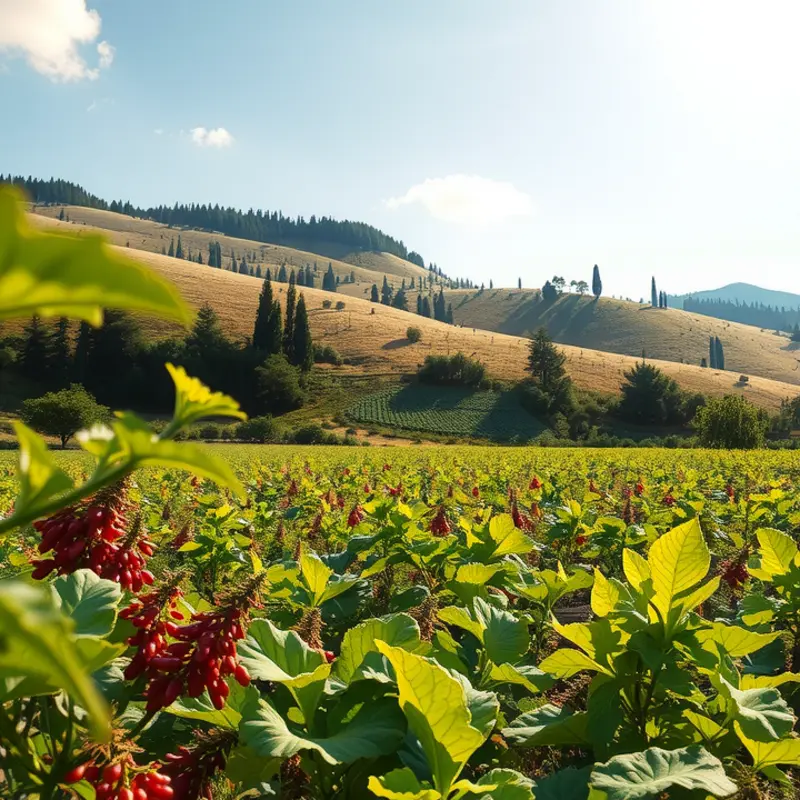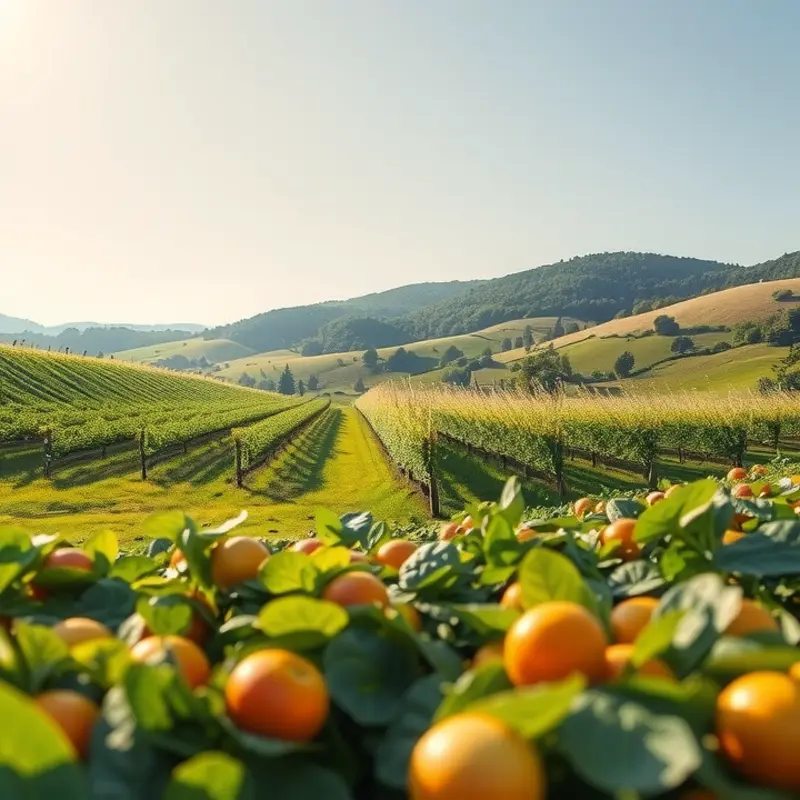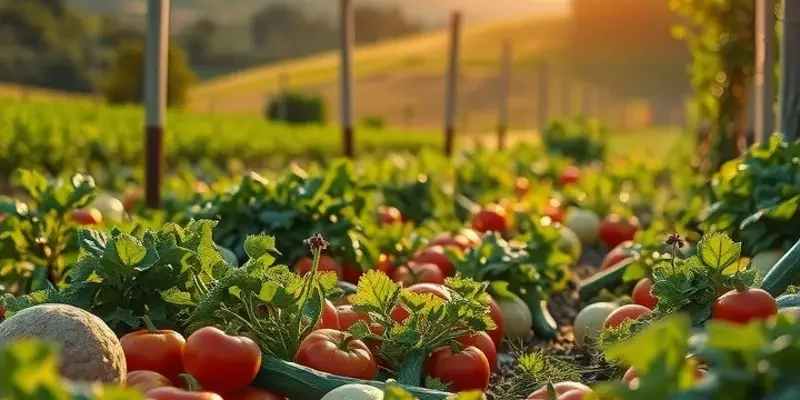Sustainability in food production is vital for the health of our planet and our future generations. By embracing eco-conscious practices, individuals can significantly reduce their carbon footprint, promote biodiversity, and support local economies. This guide offers practical insights on sustainable food choices, encouraging environmentally-conscious individuals to explore options that contribute positively to both their health and the environment.
The Importance of Sustainable Food Practices

Sustainable food practices are essential for maintaining a healthy relationship with our environment. Traditional agriculture often relies heavily on synthetic chemicals, leading to severe environmental degradation. These practices can result in the depletion of essential nutrients from the soil, making it less fertile over time. Additionally, the overuse of pesticides and fertilizers contributes significantly to water pollution, affecting aquatic ecosystems and the quality of our drinking water.
Adopting sustainable practices, such as organic farming, can mitigate these negative impacts. Organic agriculture avoids synthetic chemicals, focusing instead on natural methods to boost fertility and control pests. This approach not only preserves soil health but also enhances it, encouraging biodiversity below and above the ground. Healthy soil acts as a carbon sink, sequestering carbon dioxide and helping combat climate change.
Water conservation is another crucial aspect of sustainable food production. Conventional farming methods often require vast amounts of water, straining local water resources. In contrast, sustainable techniques, such as drip irrigation and rainwater harvesting, optimize water usage. By doing so, they ensure that water resources are conserved for future generations while maintaining crop productivity.
Supporting local farmers is a significant step toward embracing sustainability. Local farms tend to adopt more sustainable practices due to a close connection with their environment. Buying locally reduces the carbon footprint associated with transporting food over long distances. This not only benefits the planet but also enhances the freshness and quality of the food we consume.
Reducing pesticide use is imperative for protecting biodiversity. Pesticides can harm beneficial insects, such as pollinators, which are crucial for crop production. By minimizing pesticide use, we encourage the presence of these beneficial species, fostering an ecosystem where natural pest control can thrive. This integrated approach ultimately leads to improved food quality and safety.
Organic farming aligns with various diets promoting health and wellness. For instance, the Mediterranean diet often incorporates organic ingredients, championing fresh, locally-sourced produce. These dietary choices reflect a commitment to sustainability by supporting systems that promote environmental health, alongside personal well-being.
In conclusion, sustainable food practices present a viable solution to many environmental challenges linked to food production. By choosing organic products, conserving water, and supporting local farmers, we contribute to a sustainable food system that respects our planet. This mindful approach leads to enhanced biodiversity, reduced pollution, and improved food quality, fostering a healthier planet and people for generations to come.
Practical Steps Towards Sustainable Eating

Adopting sustainable eating habits is essential for nurturing a greener future. By making thoughtful choices about the food we consume, we can contribute significantly to a healthier planet. Let’s explore some practical steps that can help you integrate eco-friendly habits into your daily routine.
One impactful way to start is by prioritizing seasonal and local foods. Eating seasonally ensures you’re getting the freshest produce, which is often more flavor-packed and nutritious. Local foods reduce transportation needs, decreasing emissions and supporting local farmers. Try visiting farmers’ markets for fresh produce and engage with local food networks to understand their offerings.
Reducing meat consumption is another crucial step. Incorporate more plant-based meals into your diet. Experiment with various nutritious vegetables, grains, and legumes to create satisfying dishes that lessen the environmental footprint. The Mediterranean diet is a great example, rich in fruits, vegetables, and healthy fats. For a burst of freshness, you can try preparing a Mediterranean Chickpea Salad, which perfectly combines taste and sustainability.
Choosing organic products whenever possible is also beneficial. Organic farming practices reduce the use of synthetic fertilizers and pesticides, promoting biodiversity and soil health. Although sometimes pricier, opting for organic products in key areas like fruits and vegetables can make a significant difference.
Mindful meal planning can aid significantly in reducing food waste. Plan your meals for the week, considering portion sizes and the shelf-life of ingredients. Being aware of what you have at home before shopping helps avoid over-purchasing and unnecessary waste. Creative use of leftovers, like transforming them into new meals, can minimize the food that ends up in landfills.
Finally, educate yourself about food labels and certifications. Understanding how to interpret these can guide better purchasing decisions. Look for certifications that signify ethical and sustainable practices, helping you align your values with your consumption habits.
Implementing these strategies in your daily life allows you to support sustainable food systems actively. Small changes in our eating habits can lead to big impacts on our environment, fostering a healthier planet for future generations.
Final words
Incorporating sustainability into food production is not just beneficial for the environment but also empowers individuals to make healthier choices. By understanding the significance of sustainable practices and taking actionable steps toward eco-friendly eating, we can collectively impact local and global ecosystems. Every meal is an opportunity to choose wisely, and it’s never too late to start making changes. Together, we can cultivate a greener future, leading to a healthier planet and healthier lives.








